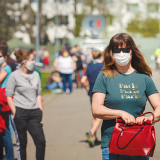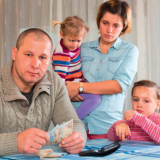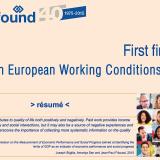EU context
Komisjon algatas 26. aprillil 2017. aastal Euroopa sotsiaalõiguste samba paketi. See hõlmab algatust toetada lapsevanemate ja hooldajate töö- ja eraelu tasakaalu. Algatuse eesmärk on tegeleda naiste vähese esindatusega tööturul ning selles tuuakse välja mitu uut või täiustatud miinimumnormi vanemapuhkuse, isapuhkuse või hooldaja puhkuse kohta.
Eurofoundi töö
Andmete kogumine
Eurofoundi Euroopa elukvaliteedi uuringutes võrreldakse riigiti töö- ja pereelu tasakaalu, paindlikku tööajakorraldust ja kvaliteetsete hooldusteenuste pakkumist. Euroopa ettevõtete uuringud pakuvad andmeid, miks ja kuidas rakendavad ettevõtted erinevat tööajakorraldust. Euroopa töötingimuste uuringutes vaadeldakse tööajakorraldust kogu ELis ja sellega seotud küsimusi, sealhulgas paindlik korraldus, tööaja eelistused ning töö- ja eraelu tasakaal.
Euroopa Tööelu Vaatluskeskus (EurWORK) pakub teavet töötingimuste ja jätkusuutliku töö kohta, sh töötasu, tööaja ja kollektiivvaidluste andmebaas. Eurofound on hinnanud ka soolise tööhõive ebavõrdsuse majanduslikke ja sotsiaalseid kulusid ning annab teavet hooldusteenustega seotud töökohtade loomise kohta.
Andmete visualiseerimine
Esiletõstetud materjal: „Foundation Focus“ – lahendused töö- ja eraelu tasakaalu tagamiseks
23. detsember 2016 – ajakirja „Foundation Focus“ käesolevas numbris võetakse vaatluse alla töö- ja eraelu tasakaal ning mõned tegurid, mis aitavad kaasa või takistavad töötajatel ühendada töö- ja eraelu. Kuna keskmine tööaeg on pidevalt vähenenud, tekib küsimus, kas töö- ja eraelu tasakaal on endiselt oluline. Kuidas on tööaja direktiiv kasulik ja millist rolli mängib paindlik tööajapoliitika? Milliseid eritoetusi vajavad need inimesed, kes hooldavad lapsi või täiskasvanuid? Töö- ja eraelu tasakaal on seotud elu muude aspektidega, sealhulgas vajadus kvaliteetse lastehoiuteenuse järele, tööhõive soolise ebavõrdsusega tegelemine ning sätted eakatele töötajatele, kes ei saa jätkata täistööajaga tööd.
Töö ja eraelu tasakaal: Lahenduste loomine kõigile




























